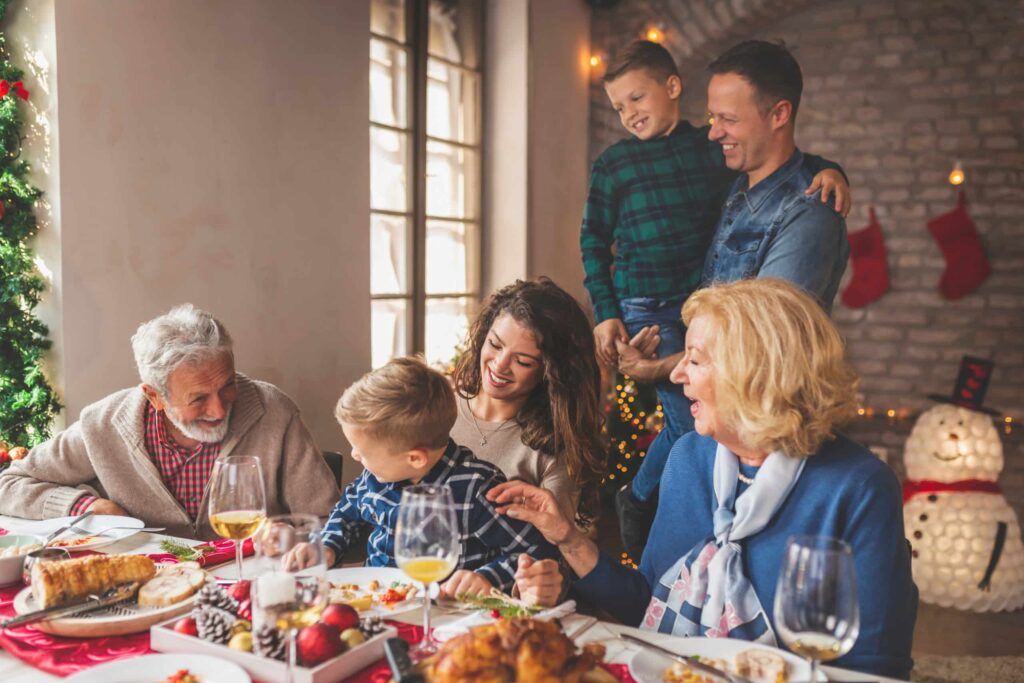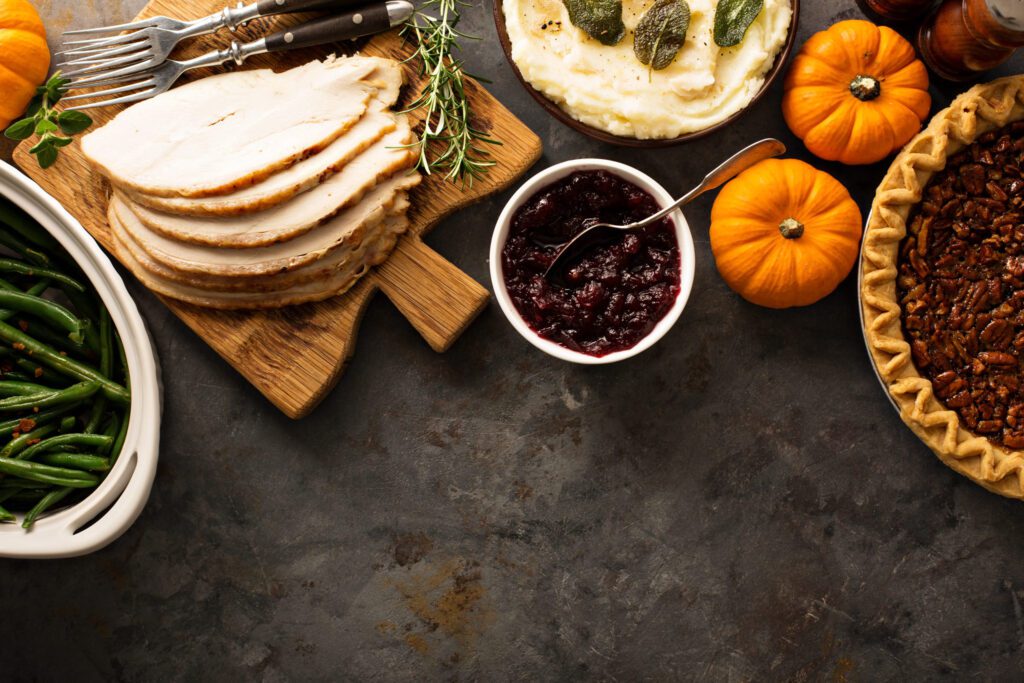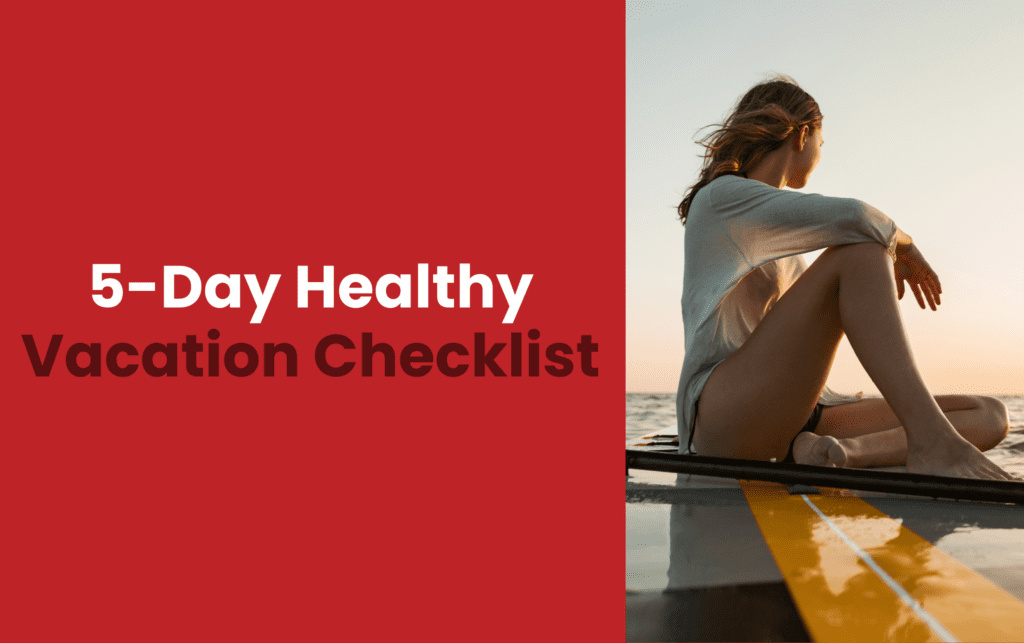Turkey, stuffing, cranberry sauce, pumpkin pie… just thinking about the holiday meals makes our mouths water. But, all that eating adds up. Did you know the average holiday meal is approximately 3,000 calories? In fact, research suggests the holiday season is the biggest calorie feast of the year! Will you survive the holidays without sabotaging your weight loss efforts, or will the feast leave you feeling like a Macy’s Thanksgiving Day parade float?
The holiday season is a time of year in which overeating is socially acceptable and sometimes even expected. You may be thinking to yourself, “Can I really do that much damage?” Unfortunately, the answer is YES. It can lead to a spiraling effect of uncontrollable eating from now until the New Year and beyond.
Most of you have worked so hard to lose weight and/or maintain it. So, don’t let this holiday season weigh you down. It’s possible to celebrate this year without packing on the pounds!
Develop a Positive Holiday “Eating Attitude”
Your eating attitude can tremendously affect your success in managing your weight during the holidays. The foundation of your success will be your belief that you can do what is necessary to reach your goals during the holiday season. What type of attitude do you have this time of year? Do you have a positive holiday “eating attitude?” Or, do you have a sabotaging eating attitude?
- Do you expect to gain weight during the holiday season?
- Do you excuse or ignore overeating during this time of year because “It is the holidays?”
- Do you expect to be overwhelmed and stressed with responsibilities?
- Do you plan to put yourself and your needs last on the list?
- Do you plan to put your weight loss goals on hold until January 1st and “start over”?
- Do you expect to eat “perfectly,” and then after one bite off of your plan, you think, “I blew it, so I might as well eat whatever I want for the rest of the day (week, month, etc.)”?
Developing a positive eating attitude is the first thing you will need to successfully achieve your weight loss/management goals this holiday season. If you identify with attitudes that weaken your ability to sustain a positive focus on weight loss or management this holiday season, the first step you can take is to decide whether these eating attitudes are sabotaging your efforts and let them go. Choose to develop more positive eating attitudes. Here are some examples of positive holiday “eating attitudes!”
- I expect to maintain (or lose) weight during the holiday season!
- “I will not overindulge just because it’s expected or acceptable. I will focus on friends and family instead of food.”
- I am capable of following my RM3 meal plan this holiday season.
You will know you have developed a more positive eating attitude when you begin to expect success, find the motivation to accomplish your goals, and believe in your ability to beat the bulge this holiday season.
Identify Triggers for Overeating & Barriers to Weight Loss
During this time of year, family activities, social functions, and even work-related activities often are centered on food. Along with the focus on food, additional pressures can include:
- Internal imposed pressures of wanting to look good and fit into a nice holiday outfit for family functions, pictures, and social events.
- Feelings of loneliness during the holidays can bring about feelings of being isolated and apart from others if you live far away from your loved ones.
- Comments from family and friends about physical appearance
- The overabundance of possible binge foods at family gatherings, social functions, and the workplace.
- Stress from interacting with family members. Often, communication can be dysfunctional or even non-existent.
- Broken routines: Many routines are broken during this time of year due to vacations, children off from school, family visiting from out of town, etc. It is hard to get back on track when a routine is broken.
The list can go on and on. The best thing you can do is to reflect on past holiday events. Ask yourself, “What were my most troublesome triggers or barriers to managing my weight? Chances are they will repeat themselves this year. Once you identify your triggers and barriers, you can devise strategies and skills to overcome them.
Strategies To Overcome Triggers & Barriers During the Holiday Season
The holiday season is filled with triggers and cues to overeat. If you do not deliberately try to respond in a different way than you had previously, you will end up falling pray to these cues, which will once again pack on the pounds. I know that this is NOT want you want to happen. So, instead, this year, let’s try something different. Let’s learn to make healthier choices, stay on track toward our goals, and learn to manage our weight. Below are some strategies to accomplish just this.
Visualize Yourself to Success
Think about what you are going to eat before the big day arrives. What will your plate look like? What will leave you feeling satisfied? Think from the end!
Visualize yourself like you have already achieved your goal. Take a few minutes every day to visualize yourself successfully living your goal. Your future self (come January 1st) will thank you!
Bring a Healthy Dish
I would recommend bringing a dish that is meal plan approved. If you’re not preparing the holiday meal yourself, ask your host if it would be all right to bring a dish that meets your dietary needs. Consider bringing a vegetable dish as this is more likely to help you stay on track.
Buddy Up
Talk to a fellow dieter before the holidays. Plan to give each other moral support throughout the season. Who can you ask to be your buddy?
Ask for Help
Let your family, friends, and the host know your goals. Most people will be respectful of your needs and not pressure you into eating seconds.
Have Doggy Bags Ready
Plan ahead to give everyone leftovers. This way, you are not tempted to continue eating well after the meal is done. You can donate leftovers to a homeless shelter or even bring leftovers to work the next day. Either way, I recommend getting the food out of your house because chances are it will continue to call your name until you eat it.
Wear Snug Clothing
Choose a snug pair of jeans over comfy sweatpants for your dinner attire. Fitted clothing will help you to eat less and stay mindful of your body image.
Drink Plenty of Water
Water helps control your appetite by making you feel fuller faster. Drinking a lot of water will make you less inclined to overeat.
Don’t Drink
If possible, avoid alcoholic beverages or choose to drink alcohol in moderation. As we all know, alcohol lowers your inhibitions, making it much easier to justify a third helping of marshmallow-encrusted yams.
Prepare for the Pushers
Some people show their love through food. Others may feel threatened by your diet and pile food onto your plate because it makes them feel better about themselves. Please remember, what you put in your body is your business. Rehearse politely saying, “no thank you” in your head or out loud. You may even try to look at yourself in the mirror saying “no thank you.” This will help you feel more confident in your ability to say no when the pushers arrive.
Stay Active & on Schedule
If you already maintain a fitness schedule, don’t let the holidays derail it. Instead of crashing in front of the TV after dinner, try going for a walk.
Start a New Tradition
I always encourage patients to get everyone involved and start a new tradition. Either before or after the meal, go on a family hike, play tennis, or take a nice long walk. However, don’t reward your good workout habits with an extra serving of pie and/or a bottle of Chardonnay. Exercise is not an excuse to indulge.

Dr. Kim Feinstein, Psy. D. is a Licensed Clinical Psychologist and Red Mountain’s Behavioral Weight Loss Specialist. She specializes in weight management, body image concerns, and eating disorders. She prides herself in her ability to educate, guide, and inspire patients to overcome obstacles and ultimately achieve their goals.









